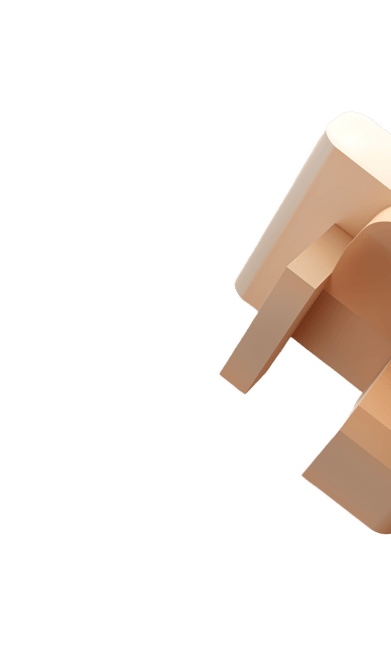Mortgages for moving home
2025 mortgage trends for home movers
As of April 2025, home movers across the UK are seeing encouraging signs in the mortgage market. Although the trend is a bit more varied than for first-time buyers, there’s still a clear pattern of gradual rate reductions—particularly for those with larger deposits.
key takeaways
✅ <60% LTV (larger deposits)
Saw the most consistent decline, from 5.04% (Jan) to 4.12% (Apr)
Reflects strong competition among lenders for low-risk borrowers
☑️ 60–70% LTV
Rates fluctuated slightly, peaking in February at 4.67%, but dropped to 4.33% by April
A meaningful 0.34 percentage point improvement from peak to April
☑️ 70–80% LTV
Fairly stable: 4.70% (Jan) to 4.81% (Apr)
Small increase suggests lenders are pricing in more risk at this LTV
☑️ 80–90% LTV
Edged down slightly: from 4.84% (Jan) to 4.76% (Apr)
Not as steep a drop as other bands, but still a move in the right direction
What it means for home movers
Those with larger deposits are clearly benefitting from falling rates.
Lenders remain cautious but competitive in the mid-to-high LTV space, which is typical for many upsizing homeowners.
Rate fluctuations suggest that timing and deposit size remain key to securing the best deal.
The first quarter of 2025 has shown promise for home movers looking to remortgage or move up the ladder. With rates trending downward and affordability improving, it may be worth locking in a fixed-rate mortgage while conditions are favourable.
Get mortgage-ready with our mortgage tools
How to get the right mortgage when moving up the property ladder
If you’re moving to your next home and not a cash buyer, you’ll no doubt have asked the question: what do I do with my existing mortgage?
When you’re moving, you have four potential routes:
Apply to transfer your current mortgage deal to your new home. This is called mortgage porting.
Apply for a new standard mortgage.
Remortgage to raise money for a deposit on your new home.
You can use your current house’s equity to pay for your new home outright if your home’s sale value covers the new home’s purchase price.
Additionally, be aware of the extra costs associated with moving house, such as conveyancing fees, Stamp Duty Land Tax, valuation fees, Land Registry fees, and the need for a reserve fund to cover unexpected costs.
Getting a mortgage for your next home
To port your mortgage, you’ll need to:
Check the terms of your existing mortgage deal. Ask if your lender will port it and if there’ll be an early repayment charge.
Speak to your lender about other deals and what you need for affordability checks.
Get mortgage advice from a broker or financial adviser and see other deals.
Compare options and work out if porting is worth it. Assess the benefits of your current deal compared to other mortgage options.
Consider how porting will affect your monthly payments and overall affordability.
Reapply for the loan.
Get a mortgage valuation on the home you’re buying.
The lender will give you a mortgage offer.
If you do not or cannot port your mortgage, you’ll need to apply for a new mortgage deal. You may have to pay an early repayment charge if you’re still in your initial period. Check the costs to ensure this is your best option.
To do this, speak to a mortgage adviser. They will guide you through the entire process.
You can also remortgage to raise money to buy your next home. This works if you are planning to:
Buy a second home to rent out as a buy-to-let
Live in part-time for example, in an area close to work
Move to a cheaper mortgage rate
Additionally, changes in house prices can affect your decision to remortgage. If house prices in your area have risen significantly since you bought your current home, remortgaging could be beneficial. However, be cautious of potential declines in house prices, which could lead to negative equity.
You must consider how the new mortgage repayments will fit your budget.
Renting out your current house
You can remortgage to buy a second home and keep one to rent out.
Given your monthly repayments, you’d need to consider whether the costs of a buy-to-let mortgage and your rental income are worth it.
Learn more in our buy-to-let guide.
Your mortgage will be repaid in full when you sell your home to buy another. You’d then take out a new mortgage to pay for your new home. In this instance, you can use the equity in your home as a deposit.
So if you’ve got a £300,000 mortgage and £175,000 left to pay, you’ll have £125,000 equity. However, if your home decreases in value, you could end up in negative equity, making it difficult to secure a new mortgage and potentially leading to a shortfall between the mortgage amount and the sale price of the property.
The interest rate on your new mortgage will also affect how much you can borrow and your monthly payments.
To find out how much you can borrow, you will need to:
get a property valuation so you know how much it’s worth
see how much you have left to pay on your mortgage
Using a mortgage calculator, you can determine how much you can borrow.
Resources for home movers
Get a mortgage with Better.co.uk today
Better.co.uk is a fee-free mortgage broker
4.8-star Trustpilot rating from over 9,000 reviews
Compare mortgage deals from over 100 lenders
Get matched with the right legal team with SmartBuyer
Fund a big expense with a Homeowner Loan

Important info & marketing claims
You may have to pay an early repayment charge to your existing lender if you remortgage. Your savings will depend on personal circumstances.
Your home may be repossessed if you do not keep up repayments on your mortgage.
*89% of customers will be better off using Better.co.uk rather than going direct with their lender. Read more on our marketing claims page.
We can't always guarantee we will be able to help you with your mortgage application depending on your credit history and circumstances.
Average mortgage decision and approval times are based on Better.co.uk's historic data for lenders we submit applications to.
Tracker rates are identified after comparing over 12,000 mortgage products from over 100 mortgage lenders.
As of January 2023, Better.co.uk has access to over 100 lenders. This number is subject to change.
For buy-to-let landlords, there's no guarantee that it will be possible to arrange continuous letting of a property, nor that rental income will be sufficient to meet the cost of the mortgage.

